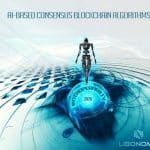You must engage in routine cyber-security assessments to keep your security up to par. Having a good defense system and setup is pertinent to maintaining effective cybersecurity. It is something that cannot be done unless you are currently aware of how you stand. Having routine assessments can play a pivotal role in determining how good your security is and where you can improve it.
Having an assessment done can help you figure out different external and internal risks that exist to close and/or minimize them. This will enable you to come up with a better plan and help you figure out how to effectively prioritize your resources and save money to address the most critical issues. Cyber security is a growing industry, take a look at Huntswood to find out what roles are available.
Update Your Software
First things first, you should be updating your software as regularly as possible. Keeping your software up-to-date is one of the best things you can do. By installing updates promptly, you should be able to keep your programs and operating system as current as possible which can deliver you pertinent security updates. Any old apps you have can be vulnerable to attacks. Likewise, they can make your device vulnerable to zero-day exploits that are capable of doing serious damage including penetrating your network, stealing your data, or even causing other damage elsewhere. You want to execute a vulnerability management process that will help you identify and address significant vulnerabilities and any missing patches you need. From there, you should be updating and patching these accordingly.
Install a Firewall On Your Network
You will need to install a firewall on your network as it will serve as the first line of defense if someone were to attempt to invade your network. Having a firewall will help because it can control both incoming and outgoing traffic based on specific rules to enhance your security. It will also help to monitor your system. You can sign-up for our exclusive newsletters to get updated information on how to secure your network. A firewall is something that will be able to effectively sense whether or not there is any data left from your network. If something unusual is happening on your system, a firewall will be able to effectively restrict access. Likewise, a firewall can be a good way to protect individual devices from Ransomware, viruses, and malware.
Watch What You Click and Download
When you are browsing on the Internet, you should be using your common sense. Be cautious of not only what you are clicking on, but also what you are downloading. Avoid any software downloads from untrusted sources and try to avoid unknown websites. A lot of websites can have malware or viruses which can unknowingly install software on your system. Likewise, if you see an email from an unknown sender with an attachment, do not click on it and avoid downloading any attachments altogether.
It would be advisable to install some security-specific add-ons to your browser. One of the best is No Script which can keep websites from running scripts that automatically download harmful plugins to your browser. You also want to try to clean up your email inbox and the inbox of everyone at your office. Teach your staff how to identify phishing and tell them to avoid clicking on emails coming from unknown sources. Try to purchase and download anti-spam software which can automatically remove unwanted emails with harmful attachments.
End Words
Cyber security is essential nowadays as we all are depending on the internet. Without updates on cyber security, we can’t protect our valuable information. I hope this content will help you to protect your valuable information and documents from cyber attacks.
Related Articles







Pingback: The Imperative of Modern Cybersecurity Solutions for File Protection - Techno Caree
Pingback: Use the Greatest Cybersecurity Tools to Navigate Cyberspace - Technology Compute
Pingback: The Imperative of Cybersecurity for Financial Departments - My Blog
Pingback: What does a Cyber Security Specialist do | OS Digital World